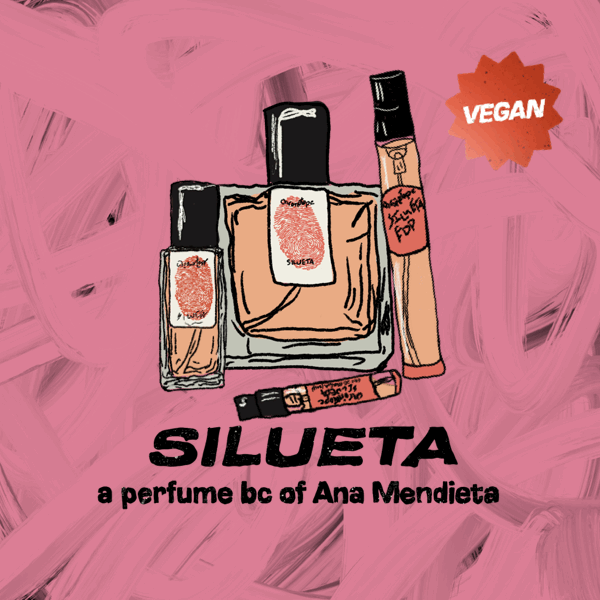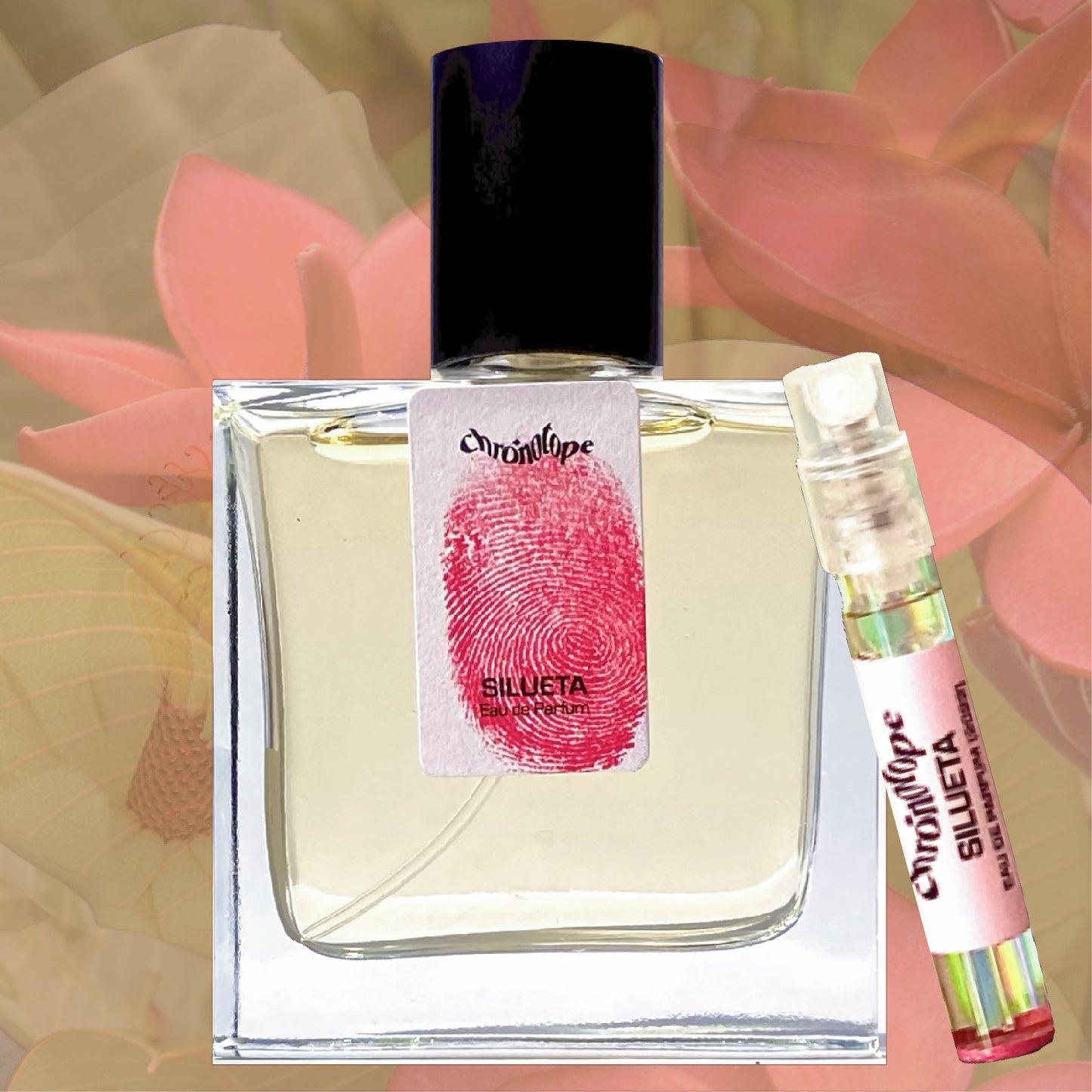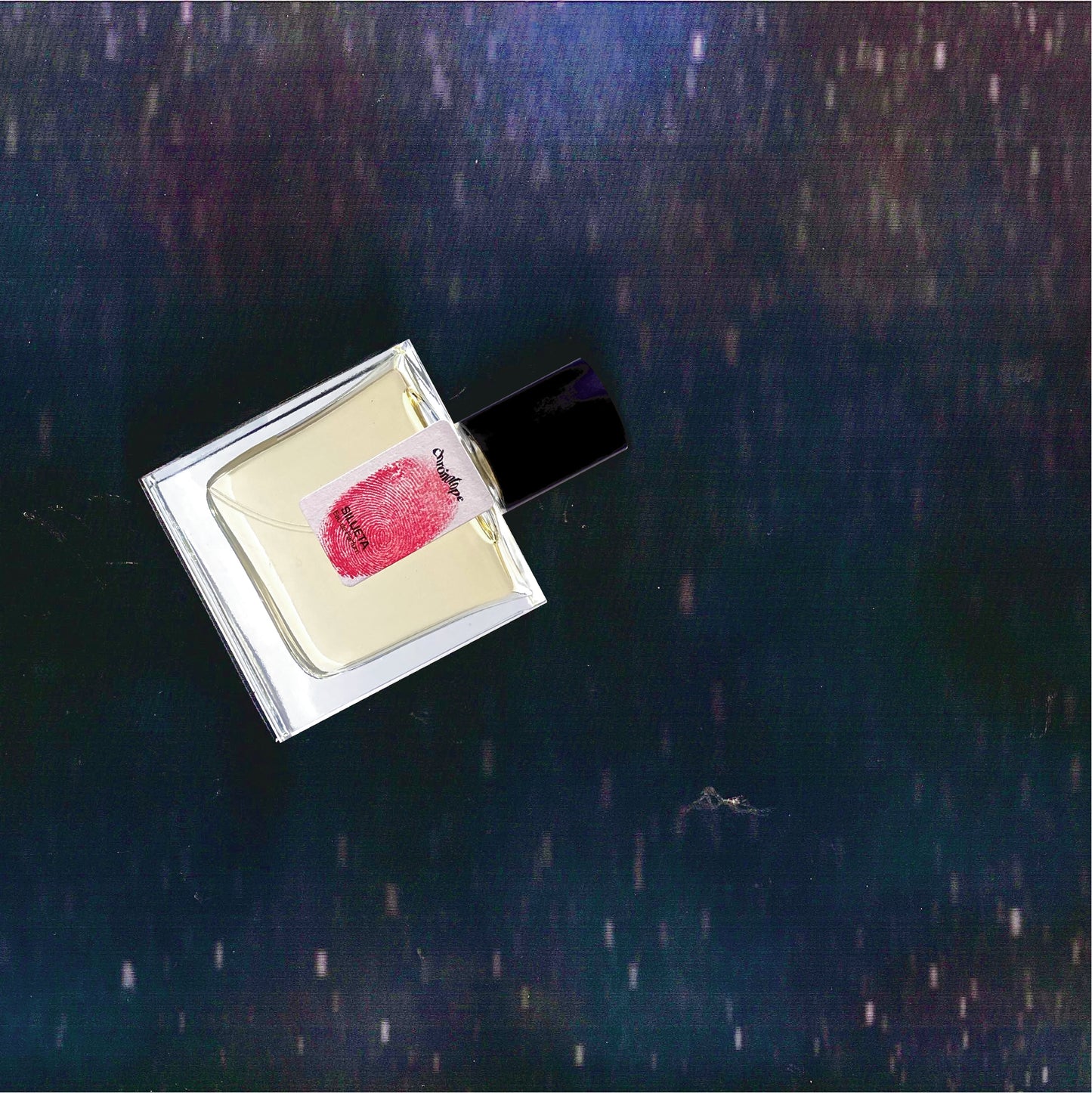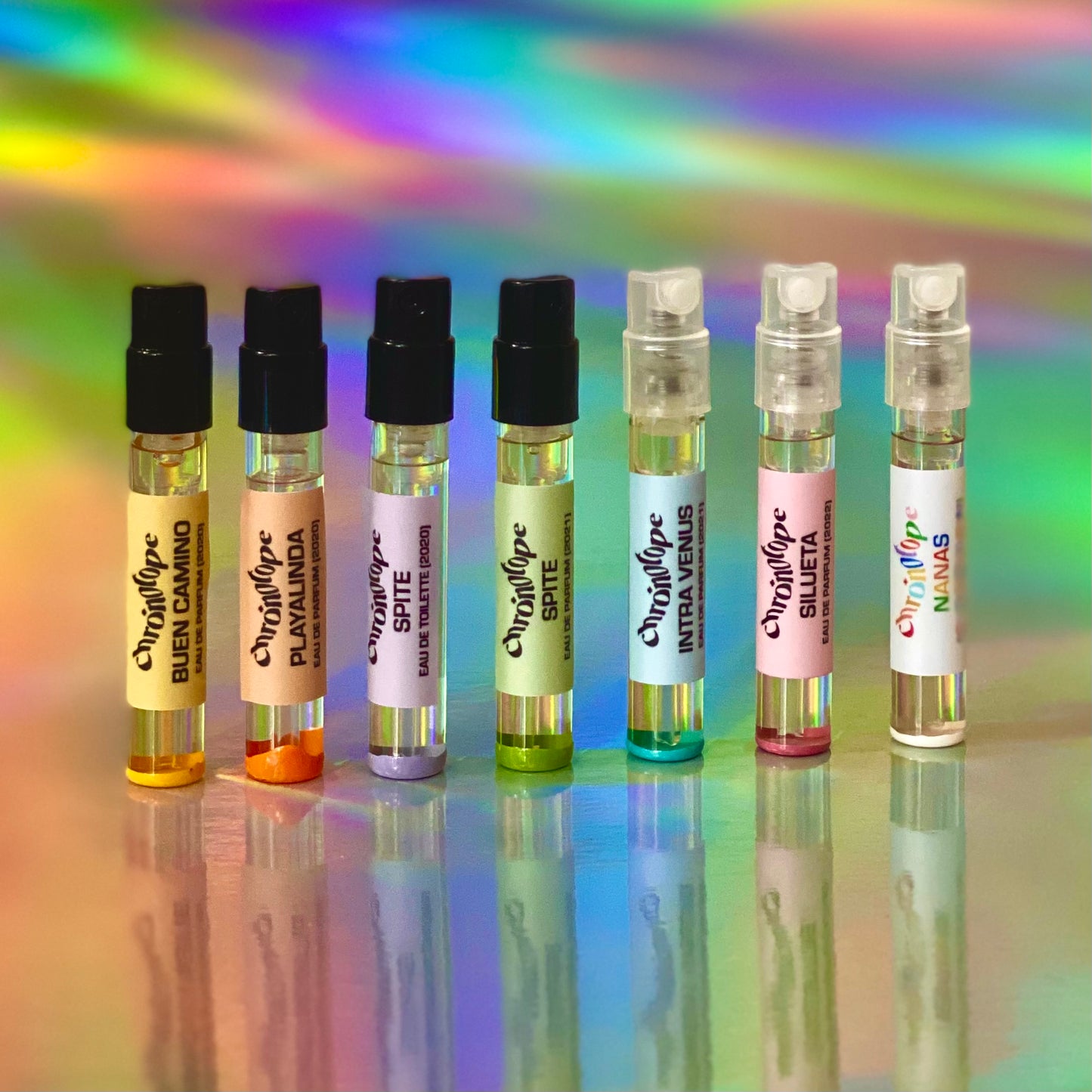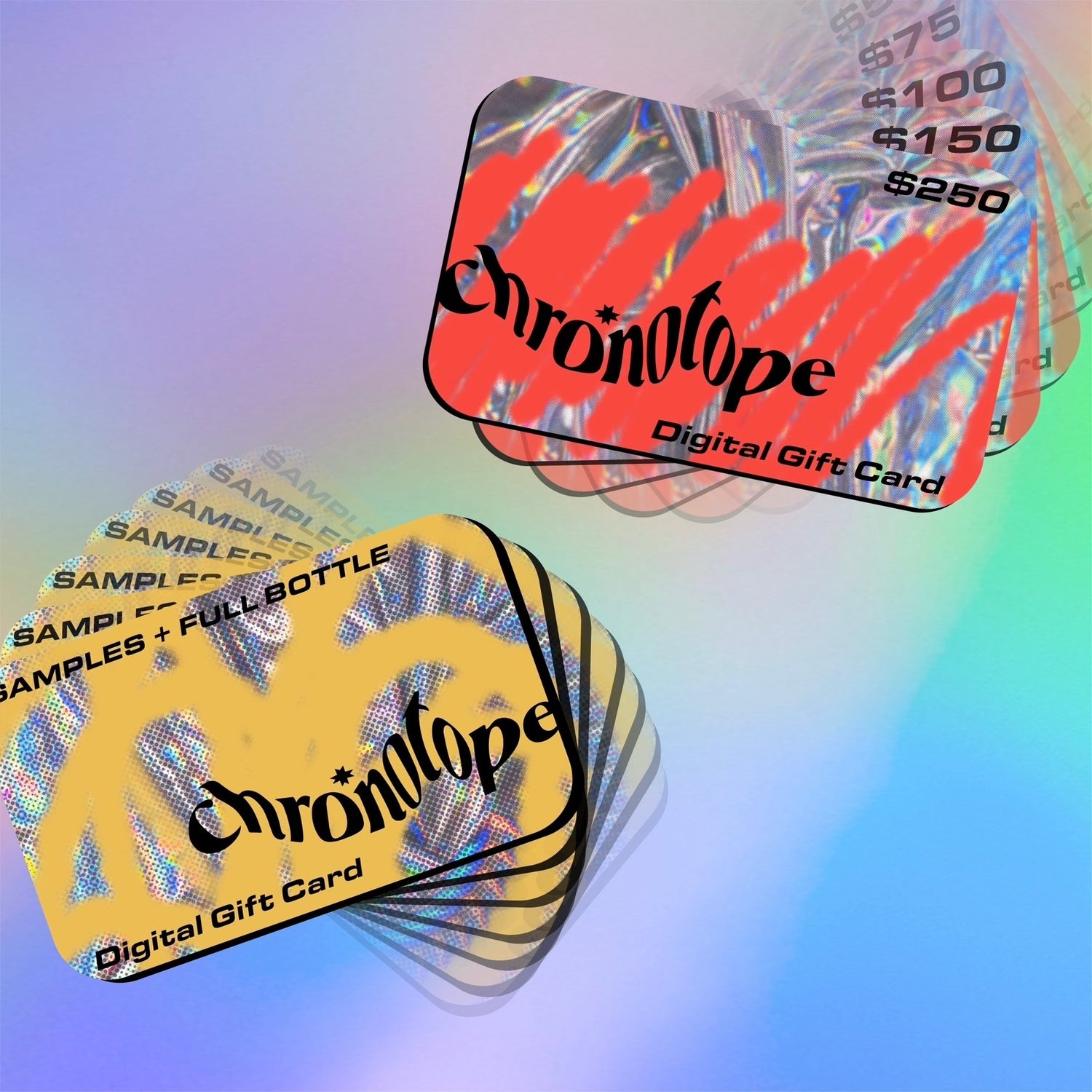Silueta Eau de Parfum
Silueta Eau de Parfum
A perfume because of Ana Mendieta
What do you smell / what do you feel?
Inspiration
Inspiration
The profoundly and unsettlingly luminous life force of late Cuban-American multimedia artist Ana Mendieta, and in particular her most haunting works that she lovingly called her Siluetas.
The Whole Story
The Whole Story
“I have been carrying out a dialogue between the landscape and the female body (based on my own silhouette). I believe this has been a direct result of my having been torn from my homeland (Cuba) during my adolescence. I am overwhelmed by the feeling of having been cast from the womb (nature). My art is the way I re-establish the bonds that unite me to the universe. It is a return to the maternal source.”
—Ana Mendieta, 1981
Scent Pyramid
Scent Pyramid
We smell objects that are necessarily limited by our culture. And because we do, we often think of our sense of smell as having an objective purpose—that it exists to help us identify objects and ourselves in relation to them in space. But this is a limited view of smell, because smell isn’t inherently committed to objects. It only becomes committed to objects when we apply it to objects.
First and foremost, smell is committed to us, to ourselves. And we are not objects. We are subjects who sense; we have subjective sensitivities. And since smell is one of those senses, it is also, and always, just that: a sense. A sensation. A feeling, in and of itself.
We allow any other feeling that we have to be enough on its own terms as a feeling in and of itself without requiring more of it than just to be. We may try to fight a feeling, like sadness, off. But we respect our feelings so much that we validate them, and we insist others not invalidate them. If I am sad, it is disrespectful for someone to tell me that I’m not. But as a categorical rule, we do not afford smell, as a feeling itself, this same luxury status. We get perturbed, confused, even angry, when we can’t assign a smell an object. We talk about how confounding smell is; we groan about how few words we have for smells. Perhaps we should give smell—and ourselves—a break. As a feeling in and of itself, it should be afforded validation simply for what it is, the same as we validate all our other feelings.
Silueta is the name I assigned to a perfume formula that I could, theoretically, write a notes list for & relate to objects. But I don’t want you to believe that perfume can, or even always should, only privilege your sense of smell’s ability to identify objects. If perfume is an art—and I think it is—then it should be capable of honoring your sense of smell as a feeling, too.
So no matter how you smell Silueta, I hope you will validate that feeling. It does not need to be related to objects that are not you in order for you to validate it, because it is your own, subjective experience. And that—you—are more than enough.
Customer Reviews
Customer Reviews
“It is exquisitely lovely, with aromas […] leaving their quiet presence on your skin, a ghostly visit from Ana herself.”
—Diane St. Clair, Perfumer, St. Clair Scents (via Instagram)
”I sprayed this on this morning and felt a rush of scrambled emotions and nostalgia […]”
—Reddit user r/Wordortwo (via r/Indiemakeupandmore)
“Silueta is a critical art perfume, probably most appropriate for critical art people […] For the record, I don’t actually care about critical art stuff […] But I fucking love smells and smell culture. I think this perfume is interesting and I like wearing it too.”
—Billie Stimpson, founder of Pink Manor Decant Club (via IG Stories)
”This perfume speaks to my Hawaiian roots and the beauty of my cherished childhood […] I sampled this a few weeks ago and upon my first wearing my daughter immediately noticed it and said she liked it (she’s 16 and never compliments any of my fragrances) […] At that moment I had to have a full bottle. Mahalo nui loa Carter for creating this perfume that embraces everything I love from my island roots!! ALA MAIKA’I”
—Reviewer @tammielovesfragrances (via Instagram)
Ingredients
Ingredients
Couldn't load pickup availability
